Want to receive updates about calls to action, and get the latest news about end-of-life legislation and advocacy efforts? Sign up for our free newsletter The Death Positive Advocate.
Legislative Advocacy News
Five States Have Passed Human Composting Bills So Far in 2024
Arizona, Maryland, Minnesota, Maine and Delaware have all passed bills legalizing human composting. This new, eco-friendly form of disposition that transforms human remains into soil, continues to gain traction across the U.S. as a growing number of people seek out more meaningful and sustainable death care choices. Composting bills have now been passed in twelve states total including Washington, Oregon, Vermont, Colorado, Nevada, California, and New York.
To learn how to support the legalization of human composting efforts or for a full list of states that have introduced bills, visit our Support Composting Legislation page.
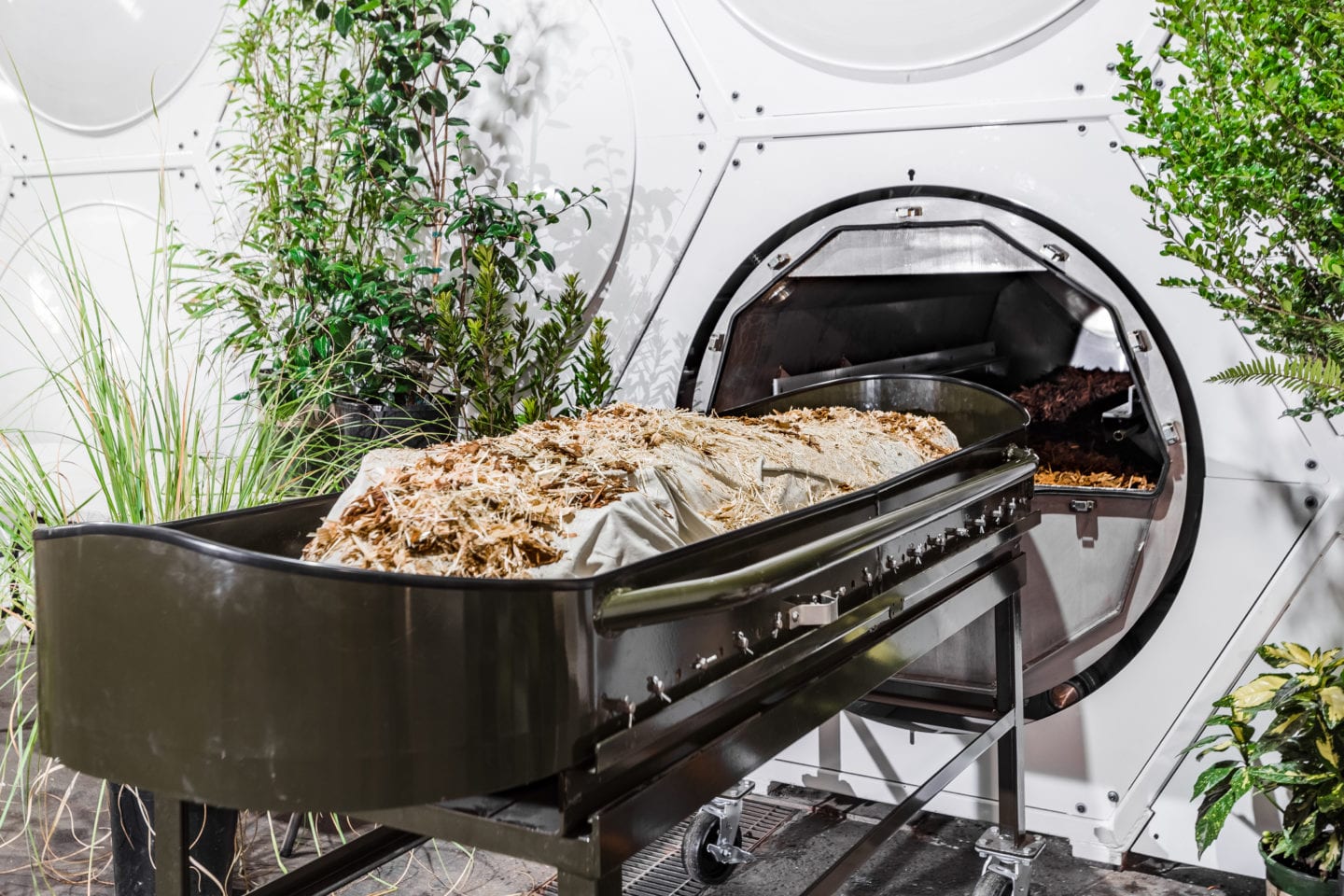
Image via Recompose, in Seattle, WA.
New Bill in New Jersey May Help State’s Hindu Community Restore Funerary Rituals

Currently, crematories in New Jersey can only be built on cemetery grounds resulting in a lack of choices, restrictions on family and community participation, and time limits. While not ideal for any grieving family, these limitations have had a particularly negative impact on mourners in the Hindu community, whose multi-day rituals and the participation of the wider community are required for a good death. However, a new bill that would allow the creation of stand-alone crematories could change this, allowing Hindu funerary rituals to be restored and more accessible.
Minnesota Places a Two Year Moratorium on Green Burials
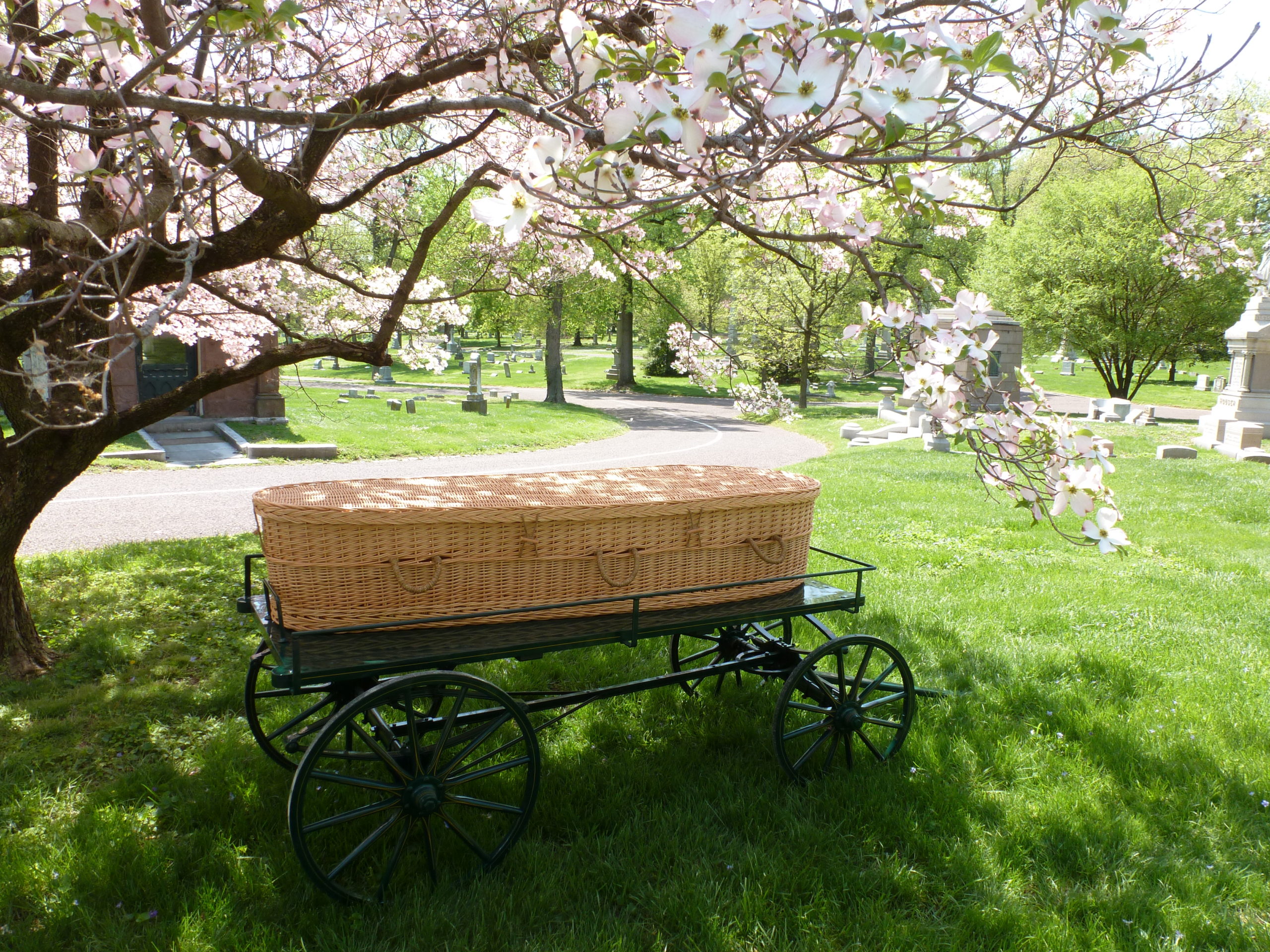
The state passed a law effective July 1, 2023 that bans new cemeteries from offering green burials for the next two years. The decision was made in response to concerns from local residents regarding 20-acres of land in Blackhoof Township that was purchased with the intention of establishing a green burial ground. Many of the concerns voiced, such as worries about smell, animals digging up bodies, or groundwater being affected, are unfounded.
These decision is particularly concerning as it may impact people’s right to a good death and religious freedom, particularly for people of Muslim and Jewish faiths who have always practiced a form of “green” burial. “It seems to be a careless decision here by the state,” said Jaylani Hussein, executive director of the Minnesota Chapter of the Council on American-Islamic Relations.
The Green Burial Council, which is the certifying body for green burial grounds in the U.S. has released a statement on the moratorium. Learn more about this story in the MinnPost.
In 2024 a Township in Michigan also moved to ban green burials, also citing unfounded concerns as a motivating factor.
New Jersey Bill to Create Separate Licensing Requirements for Funeral Directors and Embalmers to Accommodate Consumer Demand and Those Who Don’t Want to Practice Embalming
On June 27, 2023 New Jersey bill 4043 was introduced, which would create separate licensing requirements for funeral directors and embalmers. As is the case in many U.S. states and under New Jersey’s Mortuary Science Act established seventy years ago, funeral professionals must hold a Mortuary Science degree and obtain a dual license for both funeral directing and embalming to practice funeral arranging. If this law passes students in Mortuary Science programs would be able to forego the more intensive embalming training, while focusing instead on “front of the house” aspects of running a funeral home such as working with families to arrange and direct funeral services.
As noted in the text of the bill and this recent NY Times article, demand for embalming services is down due to a number of reasons, including a higher percentage of people choosing cremation, the rising interest in greener funeral options, and the societal shift prompted by the Death Positive Movement in which people are “…questioning the way that things have always been done.”
The bill not only anticipates consumer demand and the future of the funeral industry, but would accommodate a growing number of people who are interested in entering the funeral industry, but are reluctant to practice embalming for personal, cultural, or environmental issues. While embalming remains a valuable option in many cases, we hope to see more states and Mortuary Science programs consider passing similar bills.
California Cemetery and Funeral Bureau vs. Death Doulas
A court case in California could force death doulas who provide information and non-medical support to dying people and their families, to become licensed funeral directors.
Full Circle of Living and Dying, a California based nonprofit that provides end-of-life and after death care education is at the center of a legal battle with California’s Funeral and Cemetery Bureau that could impact the public’s right to death education and information and how death doulas work in the future. For details on this case read our article Defending Your Right to a Good Death, and listen to an interview with Akhila Murphy from Full Circle and Ben Field, attorney at the Institute For Justice.
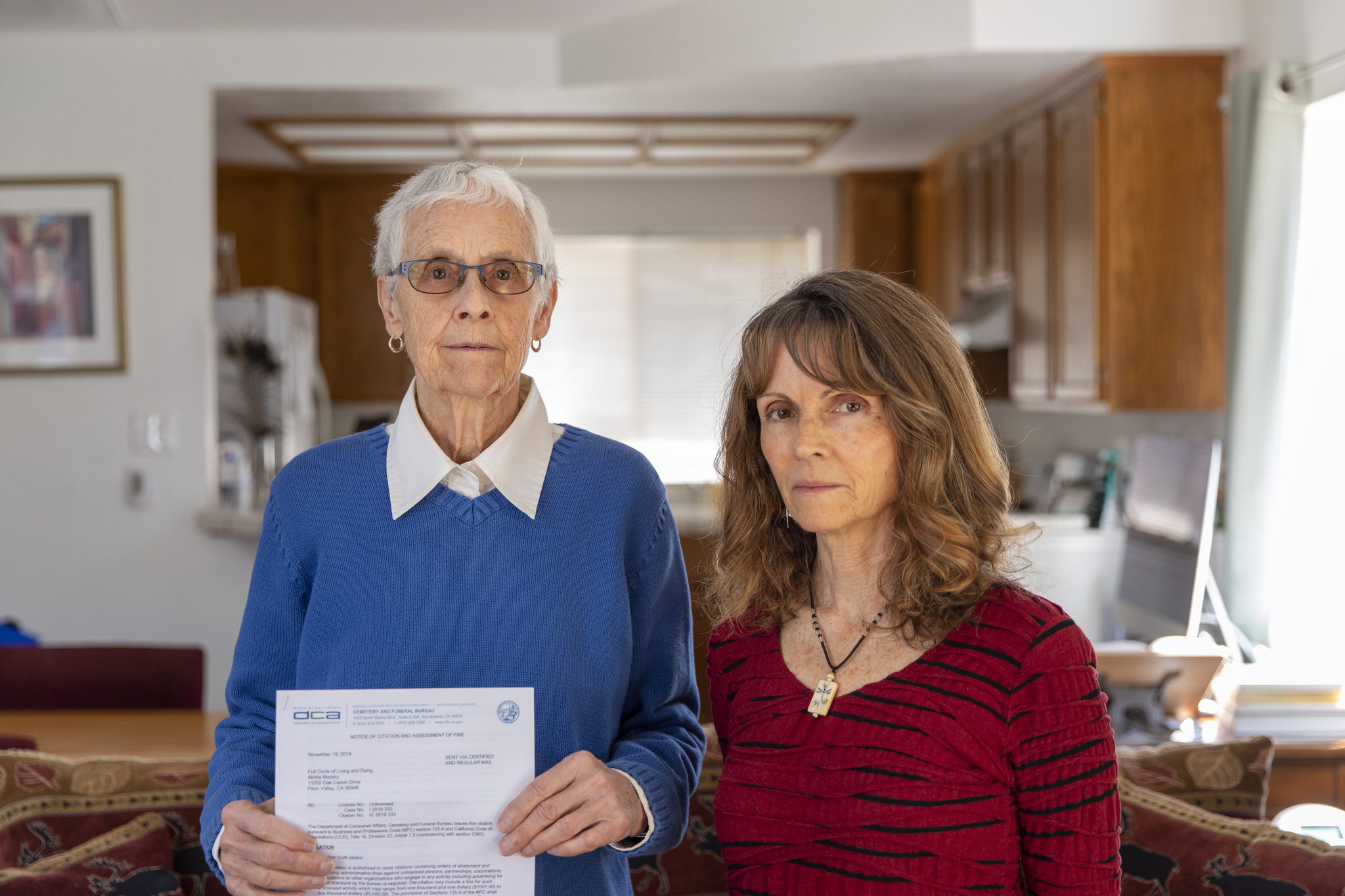
In August 2023 we received the following update on this case from Full Circle and the Institute for Justice:
The judge has ruled that it is unconstitutional for the government to restrict educational speech and individual end-of-life planning, and also that it’s also unconstitutional for California to require Full Circle to become a licensed funeral establishment. A trail date has been set for early 2024, to decide the remaining issue of requiring doulas to become licensed funeral directors in order to assist in home funerals.
2024 Judge issues Final Ruling, “Californians are free to choose the end-of-life care that best suits them.”
We are happy to report that a federal judge has filed a final order that California cannot require death doulas to become licensed funeral directors, protecting free speech, and death education. Akhila says, “I’m ecstatic that Full Circle, and other death doulas throughout the state, can continue to provide this valuable service for families who are seeking home funerals.”
“It was clear from the start that the state’s regulations had nothing to do with protecting the public or ensuring safety,” said IJ Attorney Ben Field. “These regulations only served one purpose, and that was preventing alternatives to traditional funerals from succeeding in the market. But now, Californians are free to choose the end-of-life care that best suits them.”
Source: Institute for Justice
Indiana State Board of Funeral & Cemetery Service vs. Death Doulas
A second state has tried to silence free speech around death and end-of-life planning by demanding an Indiana death doula stop sharing information with families about end-of-life planning. This is the second case we’ve seen in the U.S., the first being California (detailed above), in which a funeral and cemetery state board is demanding that a death doula, Lauren Richwine, Founder of Death Done Differently, go through mortuary science school to become a licensed funeral director, as well as operate a licensed funeral home in order to share information with her community about people’s rights and choices in death.
In August Lauren filed a lawsuit in federal court claiming state officials violated her First Amendment right to free speech. She is supported by the Institute of Justice, which is also working on the California case.
Breaking News: On December 19th, a federal judge ruled that the state had overstepped on Richwine’s First Amendment rights and is allowing her to resume business as the lawsuit proceeds. About the ruling Richwine says “I’m incredibly thankful that I can continue to facilitate important discussions with my clients about their end-of-life options while our lawsuit is ongoing,” said Lauren. “All Hoosiers deserve to know their choices at the end of life, so they can make an informed decision that best fits their unique needs.”
Read our May 2024 article about this case, How the Funeral Industry is Trying to Limit Free Speech by Targeting Death Doulas.

Michigan Township Accused of Banning All Cemeteries in an Effort to Stop the State’s First Conservation Burial Ground From Opening
Green burial is a safe and legal burial practice that uses biodegradable containers and avoids embalming fluids and vaults. Conservation burial goes a step further to commit burial fees to pay for land acquisition, protection, restoration, and management (via Prairie Creek Conservation Cemetery). Over 60% of Americans are interested in green funeral options. In result, demand for green burial grounds has led to an increase in the creation of green and conservation burial grounds, as well as the legalization of other eco-friendly options like aquamation and human composting.
As part of this rapidly growing movement toward green death care options, Peter and Annica Quakenbush had been working with zoning administrators toward creating a burial forest in Brooks Township, Michigan, carefully ensuring that the cemetery would comply with both green cemetery certification requirements set forth by the Green Burial Council, and the state’s health and safety standards. However, despite strong support from the surrounding community, the town’s board passed an ordinance banning all cemeteries in an effort to prevent the Quakenbushes from bringing conservation burial to Michigan residents. The ordinance contains language pulled directly from the Quakenbushes’ website, making it clear that the board’s intention was to block the couple from establishing their burial ground. In result, the Quakenbushes are suing the township. Learn more about the case, which has been taken up by the Institute of Justice.
Read our March 2024 article about this case Fear of Death and Misinformation vs. Green Burial.
Colorado Passes Three Bills in an Effort to Regulate the Funeral Industry
In May 2024 Colorado adopted three new bills in an effort to regulate the state’s funeral industry following several cases that made national headlines involving the mishandling and neglect of human remains, and the illegal sale of body parts.
The bills will now require funeral directors to become licensed, (prior to this Colorado was the only U.S state that did not require licensing) and be subject to background checks, state regulators will conduct routine inspections of facilities, and new regulations have been added for non-transplant tissue banks, including requiring businesses to obtain clear consent from donors and disclosing detailed information about where their donations will be going and how they will be used.
For more info about body and organ donation visit our resource page.
Bill to Legalize Open Air Funeral Pyres Introduced in Vermont
Vermont Rep. Matt Birong introduced Bill H.216 which aims to make open air funeral pyres legal in the state. The bill was able to utilize the framework from previously approved bill H.244 which legalized composting there in 2022. The bill includes an equity and inclusion piece, as Birong explains “If we are being genuine about being more open and accepting to broader… races, creeds, religions, funerary tradition should be a serious part of this conversation.”
Currently the only public funeral pye is located in Colorado, with additional legalization efforts ongoing in Maine and Minnesota.
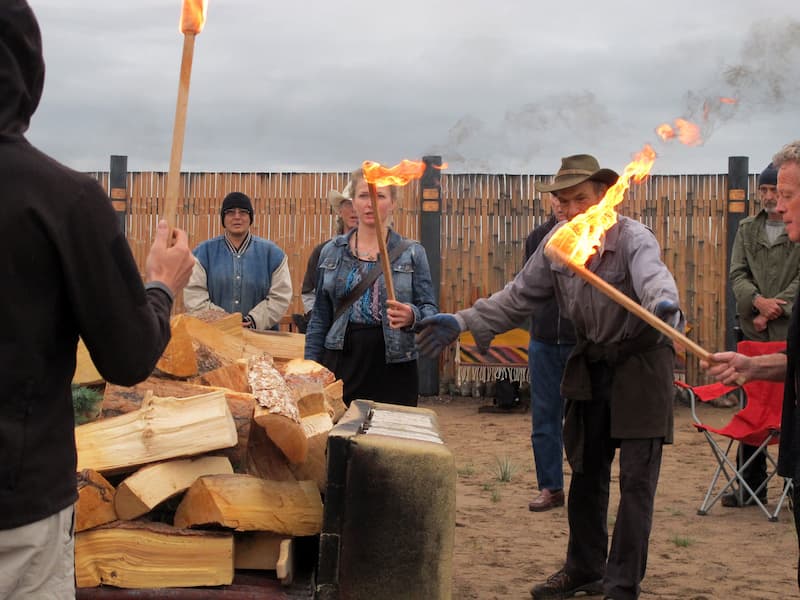
Illinois Lawmakers Pass Bill to Hold Funeral Homes Accountable
Illinois legislators passed the “Reestablish Integrity in Death Care” in May 2024, which will allow procedures and protocols to be put in place with the intention of protecting families who have lost a loved one. The bill was prompted by recent events at an Illinois funeral home that allegedly mishandled human remains, including providing families with ashes for cremations that never happened, and similar incidents of funeral industry misconduct nationwide.
The bill will require a mandatory identification tagging system for all human remains, and establish a chain of custody system that tracks a person’s body from death to final disposition.
New Law in NJ Will Incorporate Death and Grief Education into School Curriculum
A new state law will require New Jersey schools to incorporate lessons on grief into health education classes to help students understand the physical and emotional effects of loss and identify healthy coping strategies.
“Making it part of the curriculum normalizes talking about it, and that’s an important thing,” said Dr. David Schonfeld, director of the National Center for School Crisis and Bereavement at Children’s Hospital Los Angeles.
Source: Education Week
The Fight to Regulate the Body Broker Industry Continues
While donating one’s body to science is considered a noble act, it doesn’t come without risks. Currently, there is no federal oversight which can lead to confusion and misunderstandings about how a body will be used, and leaves grieving individuals and their families vulnerable to being exploited by body brokers.
With the hope of protecting future donors the Consensual Donation and Research Integrity Act was introduced at the end of 2022. The bill would create standards for registration, inspection, chain of custody, labeling and packing, and proper disposition to ensure donated bodies are not unknowingly contributed to a for-profit industry in which body brokers take advantage of donors and their families.
Watch the recent CBS News documentary on Body Brokers to learn more about this issue.
ACLU Files Lawsuit Against Delaware Board of Funeral Services for Discrimination
In June 2024 the ACLU filed a lawsuit against the Delaware Board of Funeral services on behalf of a Muslim Imam for religious discrimination. Specifically, DBFS unconstitutionally denies anyone who is not a licensed funeral director access to DelVERS, the online portal to file death certificates and obtain body transfer paperwork. However, funeral directors must complete at least 25 embalming in order to complete their studies, however the practice of embalming is against Muslim religious tenets. “Delaware presents people from the Muslim faith an untenable choice: violate their religious beliefs or not practice their religious funeral traditions at all,” says Dwayne Bensing, legal director, ACLU-DE. “The Constitution protects everyone’s right to practice their religion free from discrimination, yet Delaware’s law directly prevents Muslims, Orthodox Jews, and others who do not practice embalming from practicing their sacred funeral services.”
Updating the Federal Trade Commission’s Funeral Rule
At the beginning of 2023 The Federal Trade Commission (FTC) was considering updating and strengthening The Funeral Rule which requires funeral homes to provide consumers with prices if requested in-person or by phone, to include other forms of communication like email, and websites. Since the Funeral Rule was created in the 1980s it doesn’t include modern forms of communication like emails and texting, or websites. Consumers can potentially save thousands of dollars on funeral costs by shopping around and comparing prices, however the FTC’s 2020 review found that over 60% of funeral homes had little to no pricing information on their websites. This update would not only be beneficial to everyone, but it has the potential to improve access for disabled, low income, and non-English speaking communities, as well as families planning funerals out-of-state.
The Order has met with FTC representatives several times to provide input on the proposed changes. In September 2023 the FTC invited The Order to Washington DC to participate in their Funeral Rule Workshop alongside other consumer advocates, and representatives of the funeral industry.
In 2024 the FTC sent warning letters to funeral homes following an undercover phone sweep conducted the previous year found that dozens of funeral establishments were in violation of the Funeral Rule.
A Bill to Allow Home Burials in Washington State is Introduced
Under HB 1037, property owners in Washington state would have the ability to declare land they own a “family burial ground.” Regulations in the proposal would require property owners to register the final resting place of their family members and disclose any burials on the property to potential buyers.
According to bill sponsor Rep. Jim Walsh “The idea for this bill came from several groups, including some tribal members, It means a great deal to them and others across the state that would like to have better options…”
The bill moved on to the House Health, Finance, and Policy Committee in March 2024.
Illinois’ Human Remains Protection Act
In August Illinois Gov. J.B. Pritzker signed the Human Remains Protection Act into law, giving tribal nations — not state agencies, universities or museums — final say over how and when the remains of their ancestors are returned to them.
This historic law law makes it the state’s responsibility support the return ancestral remains and funerary objects, establishes a state Repatriation and Reinterment Fund to help with the costs of reburial, tribal consultation and the repair of any damage to burial sites, and increases criminal penalties for the looting and desecration of gravesites, while adding a ban on profiteering from human remains and funerary objects through their sale, purchase or exhibition.
Source: ProPublica
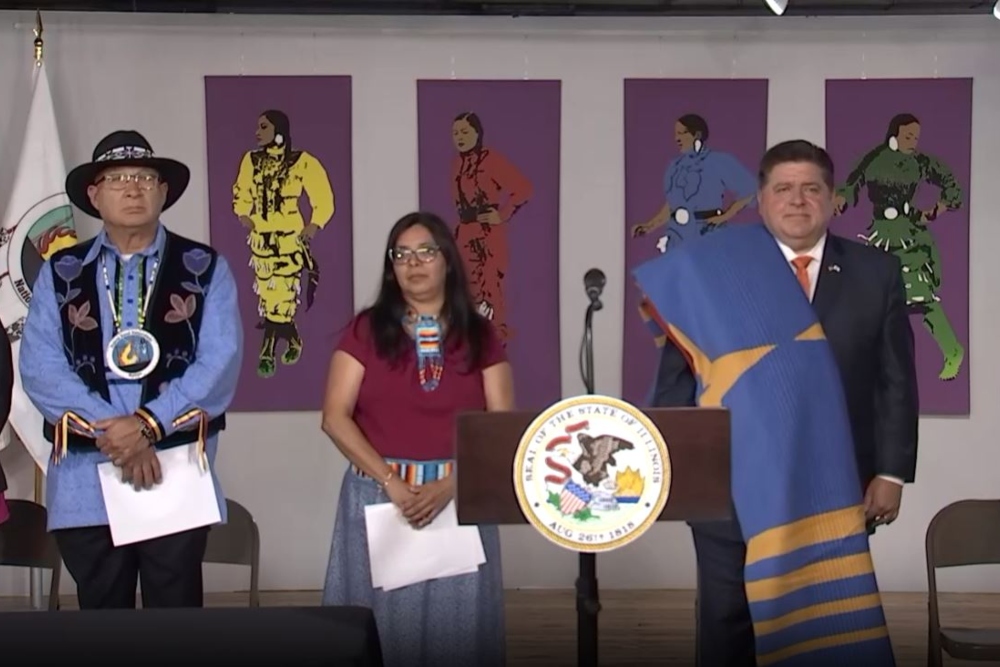
State of Illinois
